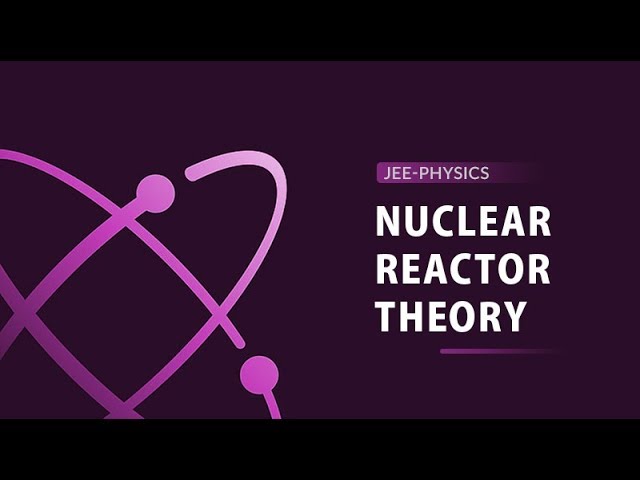Nuclear physics, the study of atomic nuclei and their interactions, significantly influences both our understanding of the universe and the practical applications that govern modern society. But could you imagine a world devoid of nuclear physics? How different would our advancements in energy, medicine, and technology be? This query not only provokes thought but also nudges us to confront a fundamental challenge: understanding and harnessing nuclear forces responsibly. In this exploration, we will delve into the multifaceted importance of nuclear physics, encompassing its historical significance, contemporary applications, and the implications it holds for the future.
The chronicles of nuclear physics began in the early 20th century, a period marked by revolutionary discoveries. Einstein’s formulation of the equation E=mc² elucidated the profound relationship between mass and energy, foreshadowing the potential that nuclear reactions hold. The subsequent isolation of radioactive isotopes sparked curiosity and inquiry that laid the groundwork for nuclear physics as an academic discipline. The proliferation of knowledge during this era enabled scientists like Niels Bohr and Ernest Rutherford to decode the intricate structure of the atom, thus contributing to the foundation of quantum mechanics.
The historical narrative of nuclear physics is punctuated by both wonders and woes. The advent of nuclear weapons during World War II serves as a stark reminder of how powerful nuclear reactions can be. This duality—one of immense power and dire consequences—shapes the ongoing discourse surrounding nuclear physics. While the destructive potential is often what captures public attention, it is essential to pivot towards the constructive applications of this discipline that offer solutions to contemporary challenges.
Primarily, one of the most vital realms where nuclear physics exerts its influence is in energy production. As the global demand for energy escalates, traditional fossil fuel sources are increasingly scrutinized for their environmental impact. Nuclear energy emerges as a robust alternative. Through the process of nuclear fission, where heavy atomic nuclei split to release energy, power plants generate large amounts of electricity with a significantly lower carbon footprint compared to coal or natural gas. However, this boon comes with its own set of challenges, chiefly the management of radioactive waste and the inherent risks associated with nuclear disasters. Thus, the quest for sustainable energy remains closely intertwined with the advancement of nuclear physics.
Equally compelling is the role of nuclear physics in medicine. The application of radioactive isotopes in diagnostics and treatment techniques has revolutionized modern healthcare. Positron Emission Tomography (PET) scans and targeted radiotherapy are prime examples of how nuclear physics translates to life-saving interventions. The utilization of tracers—radioactive substances introduced into the body—enables clinicians to visualize metabolic processes and detect malignancies with unparalleled precision. As researchers continue to explore the therapeutic possibilities of nuclear medicine, we are reminded of the ethical obligations that accompany such powerful technologies, emphasizing the need for responsible usage.
Moreover, nuclear physics extends its influence to interdisciplinary fields such as astrophysics, contributing to our understanding of celestial phenomena. The synthesis of elements within stars, the behavior of supernovae, and the intricate processes occurring in neutron stars all fall under the purview of nuclear interactions. The study of these processes not only deepens our comprehension of the universe but also establishes connections between nuclear physics and the origins of the elements that constitute the cosmos. This intersection of disciplines provides fertile ground for inquiry, asking deeper questions about our existence and the universal laws governing it.
The narrative encapsulating the importance of nuclear physics would be incomplete without addressing its geopolitical ramifications. The delicate balance between nuclear energy and weaponry often puts nations at odds, exemplifying a landscape fraught with tensions. While treaties such as the Treaty on the Non-Proliferation of Nuclear Weapons (NPT) aim to mitigate the risks associated with nuclear proliferation, the legitimacy of such frameworks is frequently challenged. The implications of nuclear physics in international relations demand that scholars and policymakers alike engage in a rigorous analysis, acknowledging the intricate tapestry that binds science and diplomacy.
In contemplating the future trajectory of nuclear physics, we confront an array of pressing questions: How do we continue to harness its benefits while addressing the ethical dilemmas it poses? What innovations await discovery that will further enhance our reliance on nuclear technologies? The ongoing research into nuclear fusion, for instance, offers tantalizing prospects. Unlike fission, fusion—the process that powers the sun—holds the promise of virtually limitless energy derived from isotopes like deuterium and tritium, with minimal environmental impact. Yet, achieving practical fusion power remains an engineering enigma, beckoning the brightest minds in science and engineering to unravel its complexities.
In summary, the importance of nuclear physics transcends mere academic inquiry. Its implications permeate our energy policies, healthcare advancements, and understanding of the universe. By grappling with both the benefits and challenges posed by nuclear phenomena, society stands at a crossroads: one which celebrates scientific advancement while advocating for ethical stewardship. The potential of nuclear physics is vast, but its journey is fraught with responsibilities that demand our unremitting attention and diligence.












